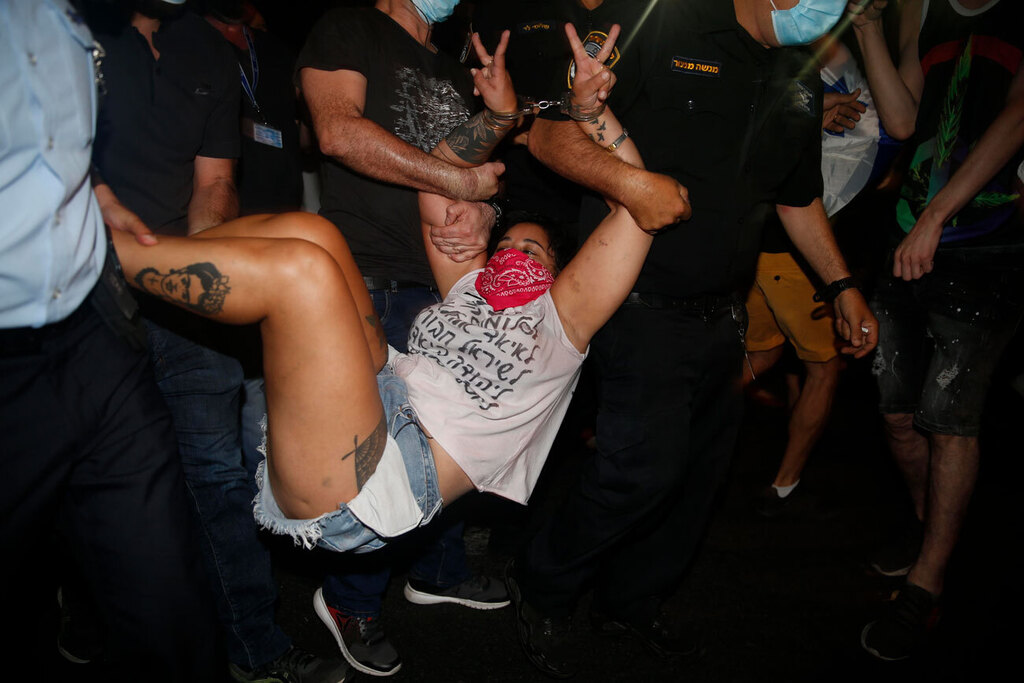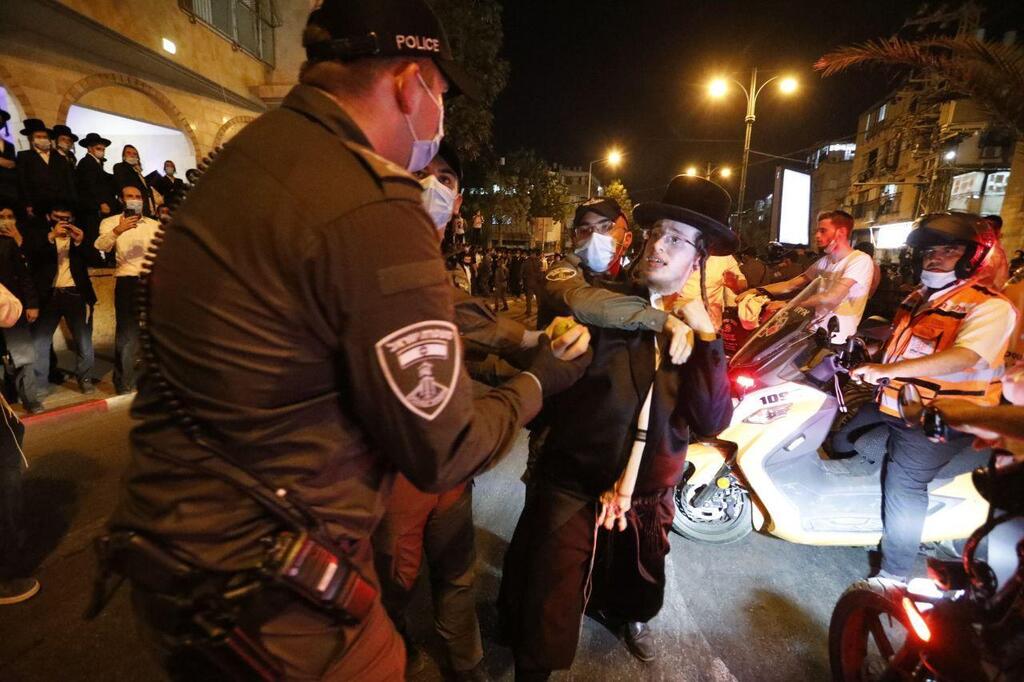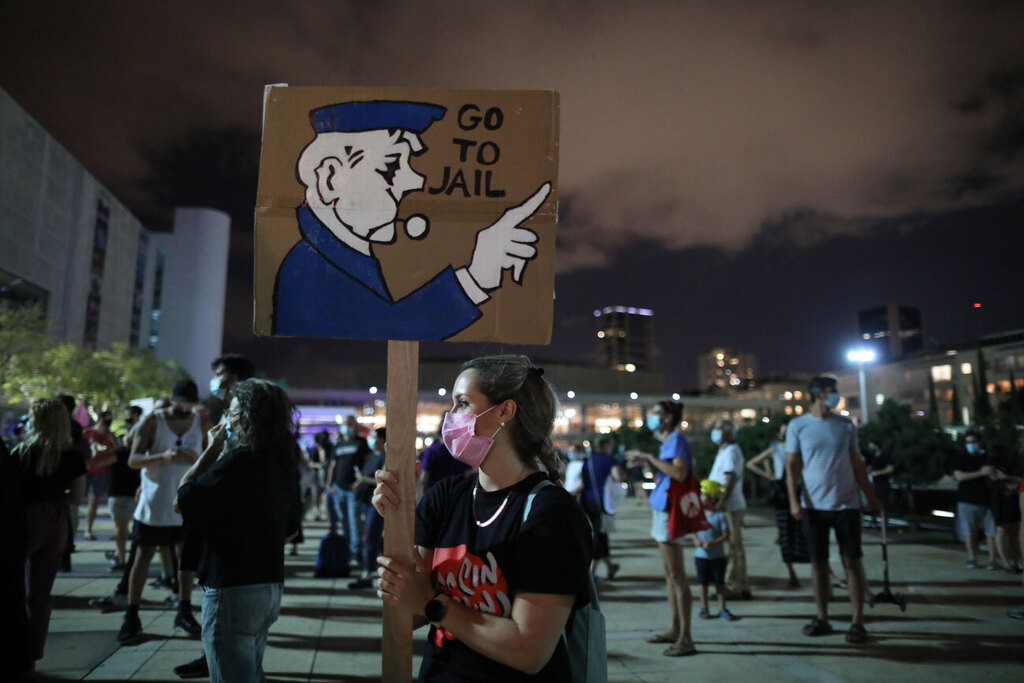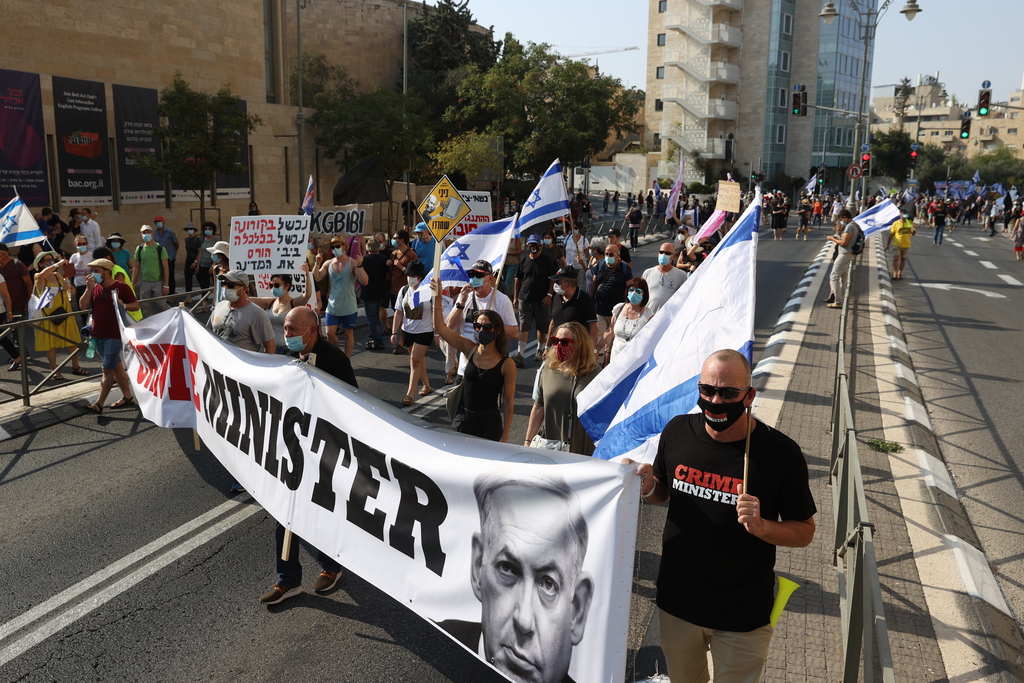Energy Minister Yuval Steinitz has repeatedly stated since June that the only way Israel can avert a disaster of historic proportions is with a total, hermetic lockdown - no one enters and no one leaves.
His radical proposition is based on a calculation by several physicists and mathematicians, and warns Israel could see more than 30,000 coronavirus deaths.
This solution suggests that restrictions must be more severe and their enforcement tighter. People would be able only to move a minimum distance from their homes, there would a complete shutdown of the economy, more police on the streets and draconian penalties for anyone breaking lockdown rules.
In the meantime, he and his colleagues in the ruling Likud party have decided to place all the burden on the shoulders of the police in order to do away with the now-daily protests against Prime Minister Benjamin Netanyahu, bring order to the streets and enforce the lockdown.
(It should be noted that Steinitz's hands are clean when it comes to the political machinations involved in ending the demonstrations.)
But they are wrong. What kept Israelis inside their homes during the first lockdown back in April and May was a combination of fear of the virus and faith in the system.
This sense of urgency was felt strongly in the ultra-Orthodox community, not because of rabbinical scripture or governmental messaging, but from the horror stories they heard from their family and friends in Haredi areas of New York.
Other Israelis found solace in what they at the time saw as success: Netanyahu and then-Health Ministry chief Moshe Bar-Siman-Tov delivering regular televised updates, the establishment and the military uniting in the cause and evidence of the start-up nation swinging into gear.
Only later did we find out that there was no success, merely an invitation for the real catastrophe to come.
Netanyahu's most egregious sin was using political tools to oversee the pandemic.
5 View gallery


Prime Minister Benjamin Netanyahu, then-Health Ministry chief Moshe Bar-Siman-Tov and erstwhile health minister Yaakov Litzman
(Photo: Shalev Golan)
The greatest sin on the part of the Health Ministry's top brass - professors Siegal Sadetzki, Hezi Levi and Itamar Grotto - was that they went along with it.
Even the current coronavirus czar, Prof. Ronni Gamzu, does not have clean hands on this issue. And now they are all trying to make amends.
The politicization of the coronavirus knew no bounds: Submissive phone calls from Netanyahu to virus-denying rabbis as police were trying to do their work; the government shutting down small businesses for fear that leaving them open could be used as a legal tool against Netanyahu by protesters; Interior Minister Aryeh Deri trying please all sides, talking about taking responsibility while praising violators, and closing and opening synagogues.
The outcome of all of this balagan is one of the worse crises of confidence that Israel has ever known. A great chasm emerged between the government and the citizenry, including complete disbelief in directives and the motives behind them.
This lack of trust has already spilled across political lines and resistance is as alive and kicking in Bnei Brak as it is in Tel Aviv.
Dictatorships have a quick and easy method to deal with lack of trust: deploy the troops on the streets and shoot anything that moves.
Democracies tend to take less drastic measures. In this case, the necessary solution - and the less painful one - is replacing those in power who failed.
Replacing officials, holding a vote of non-confidence in the Knesset, launching commissions, voting and carrying out protests are all legitimate options that have proven successful throughout Israel's history.
What ministers do not understand is that shows of force will not work. Without faith in the system, there is no enforcement, even during a pandemic.
Every attempt by police to stamp out protests, such as in Jerusalem and Tel Aviv at the weekend, only exacerbates the situation and sends more people onto the streets.
It is not too far-fetched to believe that these popular protests will explode into open rebellion.
For the first time since the creation of the state, Israel could experience civil revolt on a mass scale. The first seeds of this are already visible on social media.
It is all too easy and almost natural for such a scenario to occur. Civil resistance can take many shapes and forms.
The 2002 film "Bringing Down a Dictator," depicting the downfall of former Serbian leader Slobodan Milosevic, has already become a hit among protesters.
The film focuses on Otpor! (Resistance!), a civic protest group, which focused all of its efforts in a non-violent way to depose Milosevic.
The police force, which initially attempted to put down the protest group with violence, eventually joined them.
Israel might no be Serbia and real life is not a movie, but the chain of events is already in motion and the political echelons should take heed.





